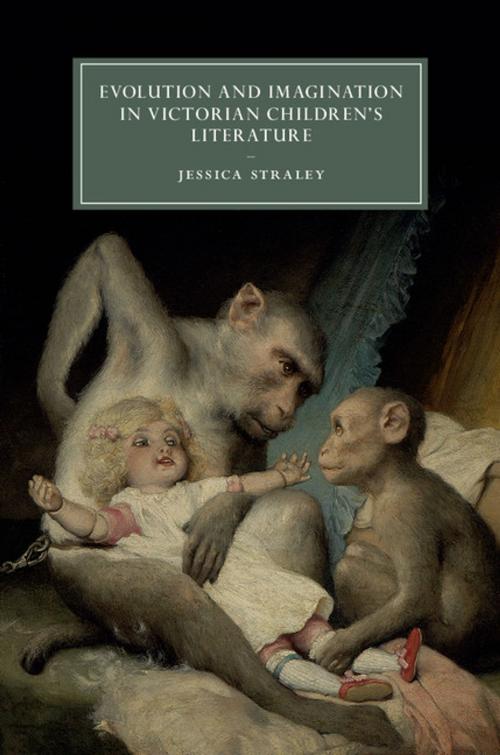Evolution and Imagination in Victorian Children's Literature
Fiction & Literature, Literary Theory & Criticism, Children&, British| Author: | Jessica Straley | ISBN: | 9781316530603 |
| Publisher: | Cambridge University Press | Publication: | June 6, 2016 |
| Imprint: | Cambridge University Press | Language: | English |
| Author: | Jessica Straley |
| ISBN: | 9781316530603 |
| Publisher: | Cambridge University Press |
| Publication: | June 6, 2016 |
| Imprint: | Cambridge University Press |
| Language: | English |
Evolutionary theory sparked numerous speculations about human development, and one of the most ardently embraced was the idea that children are animals recapitulating the ascent of the species. After Darwin's Origin of Species, scientific, pedagogical, and literary works featuring beastly babes and wild children interrogated how our ancestors evolved and what children must do in order to repeat this course to humanity. Exploring fictions by Rudyard Kipling, Lewis Carroll, Frances Hodgson Burnett, Charles Kingsley, and Margaret Gatty, Jessica Straley argues that Victorian children's literature not only adopted this new taxonomy of the animal child, but also suggested ways to complete the child's evolution. In the midst of debates about elementary education and the rising dominance of the sciences, children's authors plotted miniaturized evolutions for their protagonists and readers and, more pointedly, proposed that the decisive evolutionary leap for both our ancestors and ourselves is the advent of the literary imagination.
Evolutionary theory sparked numerous speculations about human development, and one of the most ardently embraced was the idea that children are animals recapitulating the ascent of the species. After Darwin's Origin of Species, scientific, pedagogical, and literary works featuring beastly babes and wild children interrogated how our ancestors evolved and what children must do in order to repeat this course to humanity. Exploring fictions by Rudyard Kipling, Lewis Carroll, Frances Hodgson Burnett, Charles Kingsley, and Margaret Gatty, Jessica Straley argues that Victorian children's literature not only adopted this new taxonomy of the animal child, but also suggested ways to complete the child's evolution. In the midst of debates about elementary education and the rising dominance of the sciences, children's authors plotted miniaturized evolutions for their protagonists and readers and, more pointedly, proposed that the decisive evolutionary leap for both our ancestors and ourselves is the advent of the literary imagination.















